This section features a detailed cross-reference designed to enrich your understanding of the Scriptures.
Below, you will find carefully selected verses that echo the themes and teachings related to Matthew 20:14 KJV. Click on any image to explore detailed analyses of related Bible verses and uncover deeper theological insights.
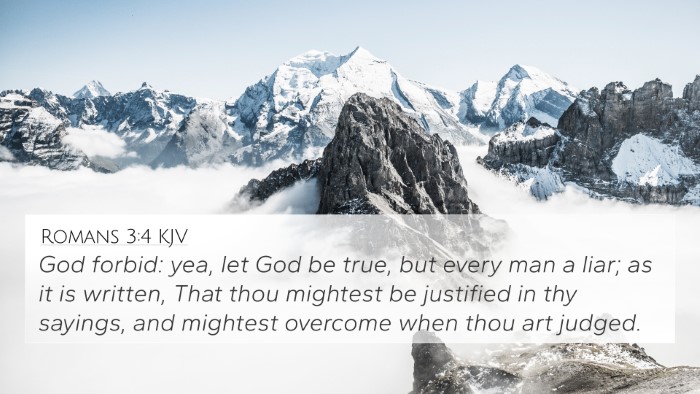 Romans 3:4 (KJV) »
Romans 3:4 (KJV) »
God forbid: yea, let God be true, but every man a liar; as it is written, That thou mightest be justified in thy sayings, and mightest overcome when thou art judged.
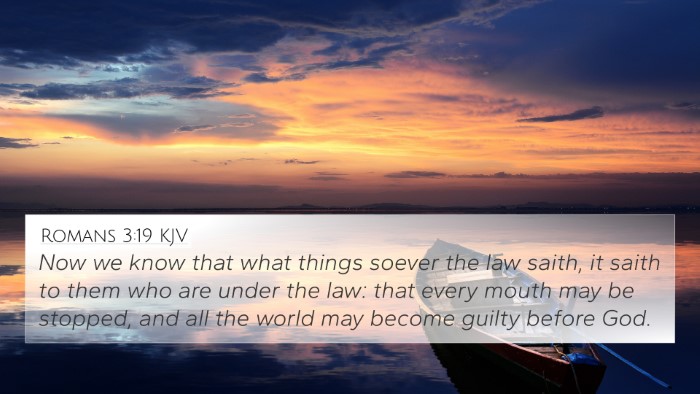 Romans 3:19 (KJV) »
Romans 3:19 (KJV) »
Now we know that what things soever the law saith, it saith to them who are under the law: that every mouth may be stopped, and all the world may become guilty before God.
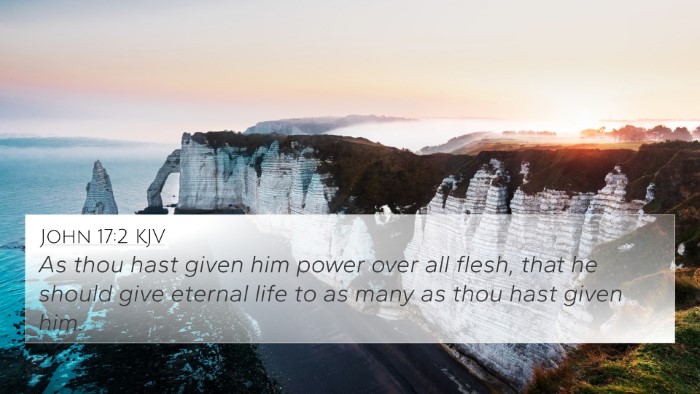 John 17:2 (KJV) »
John 17:2 (KJV) »
As thou hast given him power over all flesh, that he should give eternal life to as many as thou hast given him.
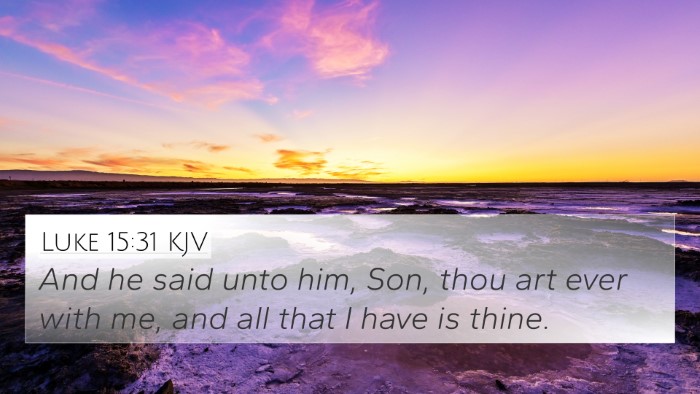 Luke 15:31 (KJV) »
Luke 15:31 (KJV) »
And he said unto him, Son, thou art ever with me, and all that I have is thine.
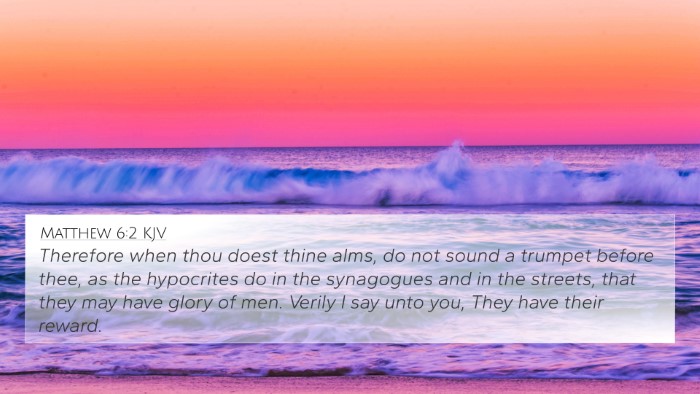 Matthew 6:2 (KJV) »
Matthew 6:2 (KJV) »
Therefore when thou doest thine alms, do not sound a trumpet before thee, as the hypocrites do in the synagogues and in the streets, that they may have glory of men. Verily I say unto you, They have their reward.
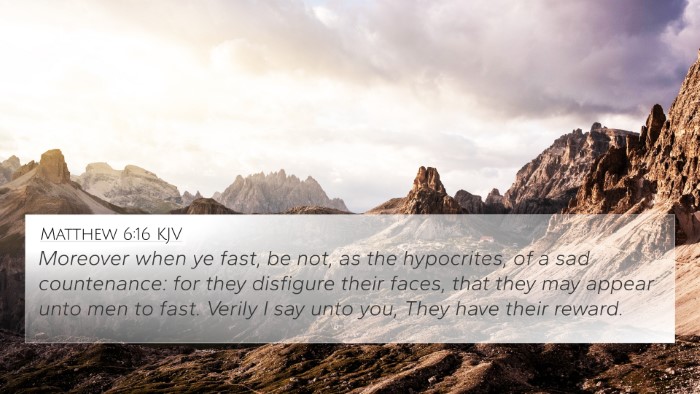 Matthew 6:16 (KJV) »
Matthew 6:16 (KJV) »
Moreover when ye fast, be not, as the hypocrites, of a sad countenance: for they disfigure their faces, that they may appear unto men to fast. Verily I say unto you, They have their reward.
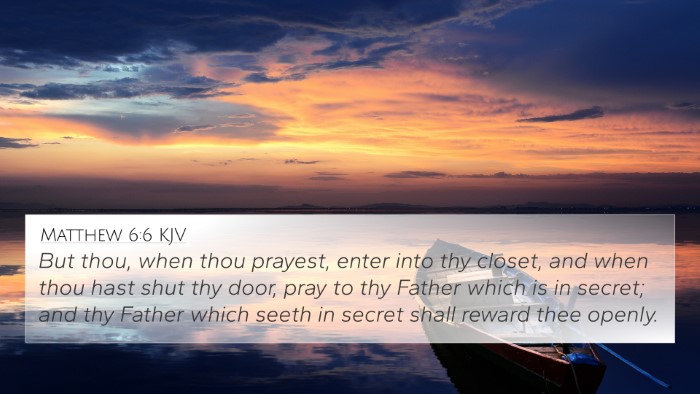 Matthew 6:6 (KJV) »
Matthew 6:6 (KJV) »
But thou, when thou prayest, enter into thy closet, and when thou hast shut thy door, pray to thy Father which is in secret; and thy Father which seeth in secret shall reward thee openly.
 Ezekiel 29:18 (KJV) »
Ezekiel 29:18 (KJV) »
Son of man, Nebuchadrezzar king of Babylon caused his army to serve a great service against Tyrus: every head was made bald, and every shoulder was peeled: yet had he no wages, nor his army, for Tyrus, for the service that he had served against it:
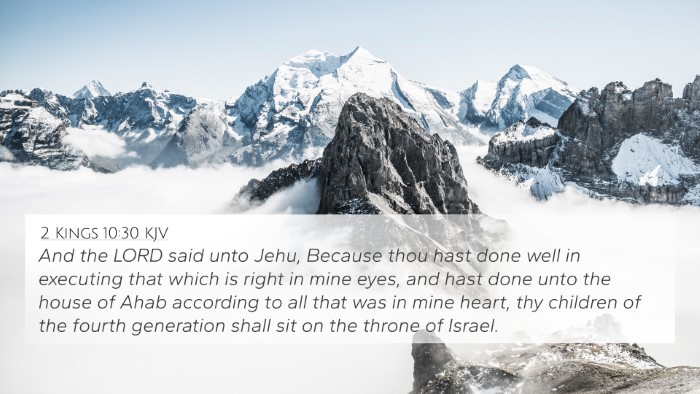 2 Kings 10:30 (KJV) »
2 Kings 10:30 (KJV) »
And the LORD said unto Jehu, Because thou hast done well in executing that which is right in mine eyes, and hast done unto the house of Ahab according to all that was in mine heart, thy children of the fourth generation shall sit on the throne of Israel.
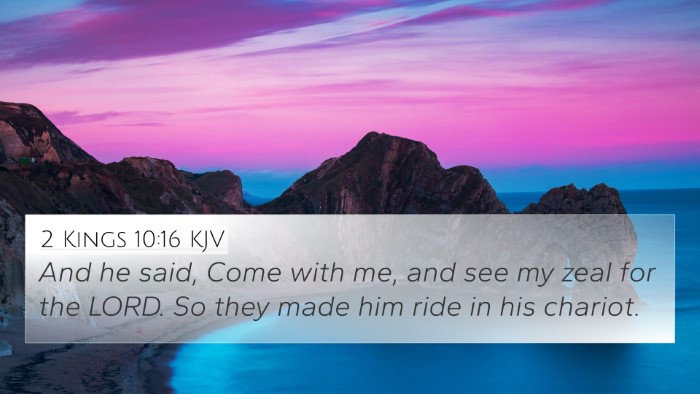 2 Kings 10:16 (KJV) »
2 Kings 10:16 (KJV) »
And he said, Come with me, and see my zeal for the LORD. So they made him ride in his chariot.
 Luke 16:25 (KJV) »
Luke 16:25 (KJV) »
But Abraham said, Son, remember that thou in thy lifetime receivedst thy good things, and likewise Lazarus evil things: but now he is comforted, and thou art tormented.













